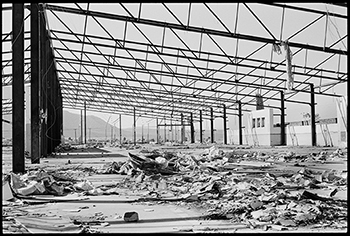Latest News Archive
Please select Category, Year, and then Month to display items
10 March 2022
|
Story Anthony Mthembu
|
Photo Unsplash
 The No Student Hungry team gearing up to start distributing food parcels to the selected students.
The No Student Hungry team gearing up to start distributing food parcels to the selected students.
The UFS is one of the many institutions of higher learning where food insecurity is an active issue. However, the
No Student Hungry Programme is one of the initiatives launched at the university to assist in fighting food insecurity at the institution.
The purpose of the programme
Since its inception in 2011, the initiative has assisted many students in acquiring a healthy meal. Additionally, the Food Environment Office also hands out food packages, so that students can continue to achieve academically. “We are trying to develop a healthy environment for students and make it easier for them to have a nice and healthy meal,” stated Annelize Visagie, who heads the Food Environment Office at the UFS. The Food Environment programme is spread out on all three campuses, each with its own facilitators. Furthermore, the programme mainly caters for students who are not funded by the National Student Financial Aid Scheme (NSFAS) but who are excelling academically. The abovementioned students apply for assistance online, and a list is then drawn up of students who receive assistance for the year.
Alternative solutions to keep the initiative running
On the Bloemfontein Campus, the No Student Hungry Programme will be catering for 200 students in the 2022 academic year, assisting them with a daily nutritious meal. Additional food parcels are also handed out to provide further assistance. “We give food parcels to the students on the list every Tuesday and Thursday at the Thakaneng Bridge,” Visagie highlighted. However, she argues that catering for the student population through this programme can be a challenge, as the demand for assistance is growing rapidly and the ability to assist is limited. The programme relies on partnerships and sponsors to assist the student body. In fact, the coordinators of the programme currently have a memorandum of understanding with Tiger Brands according to which they deliver around 100 food parcels for distribution.
In addition, the coordinators have put in place alternative measures to ensure that they can provide more food to students. “The
Kovsie Act Office, in partnership with the
Department of Sustainable Food Systems and Development, has started a food garden where healthy and nutritious produce are grown, in order to add value to the distribution,” she indicated. Although the programme can only assist to a point, students who are in desperate need of assistance are never turned away. In fact, the
Social Support Unit at Thakaneng Bridge usually assists students with food vouchers for a maximum of four days.
A commitment to teaching healthy eating habits
The programme is not only committed to curbing food insecurity, but also to ensuring that students have a healthy and balanced diet. As such, a booklet is being issued by the
Department of Nutrition and Dietetics in collaboration with the Department of Sustainable Food Systems and Development, which contains ways in which students can make a healthy meal using some of the ingredients offered in the food parcels.
“We want to teach students how to eat healthy in the cheapest way, because they don’t have a lot of money to buy expensive food products,” Visagie argued.
Award-winning photographer exhibits ravages of war, 25 May 2016 until 17 June 2016
2016-06-02

The ruins of the Dimbaza Border Industrial Park built
in the 1970s as a source of cheap labour for industrialists
and ostensible employment for Ciskei Homeland citizens.
This industrial zone collapsed after 1994.
Photo: Images courtesy of the Galerie Seippel.
All images © Cedric Nunn
Cedric Nunn’s latest photographic exhibition, Unsettled: One Hundred Years War of Resistance by Xhosa Against Boer and British, opened on 25 May 2016 at the Johannes Stegmann Art Gallery of University of the Free State, and will run until 17 June 2016. Since 2014, the exhibition has travelled through South Africa and the USA as well as Germany.
The photographer, documentary film-maker, and artist’s photographic journey was launched in the early 1980s in Durban. In 2011, he won the first FNB Joburg Art Fair Award.
Narratives of the victors and the vanquished
Unsettled deals with the nine wars that Xhosa people were subjected to between 1779 and 1879 in their fight against Afrikaner and British colonial settler forces. Nunn’s art seeks to instigate social change, and highlight lesser-seen aspects of society.
The work emanated from his awareness of a notable gap in the telling of this piece of South African history, as well as the fact that, to date, little has been done to memorialise these acts of colonial aggression and Xhosa resistance. He decided to document the land where these struggles took place.
“Through revisiting this painful past in the contemporary scenes of today, this work attempts to place the present in its factual context of dispossession and conquest,” said Nunn.
Unsettled forms the first component of what will be a trilogy. The next component will address the legacy of colonial dispossession through “bringing ‘the first inhabitants’ back into the picture by giving a select number of self-describing Khoi, Griqua, and San or Bushmen a contemporary face and presence”. The final component will look at slavery.